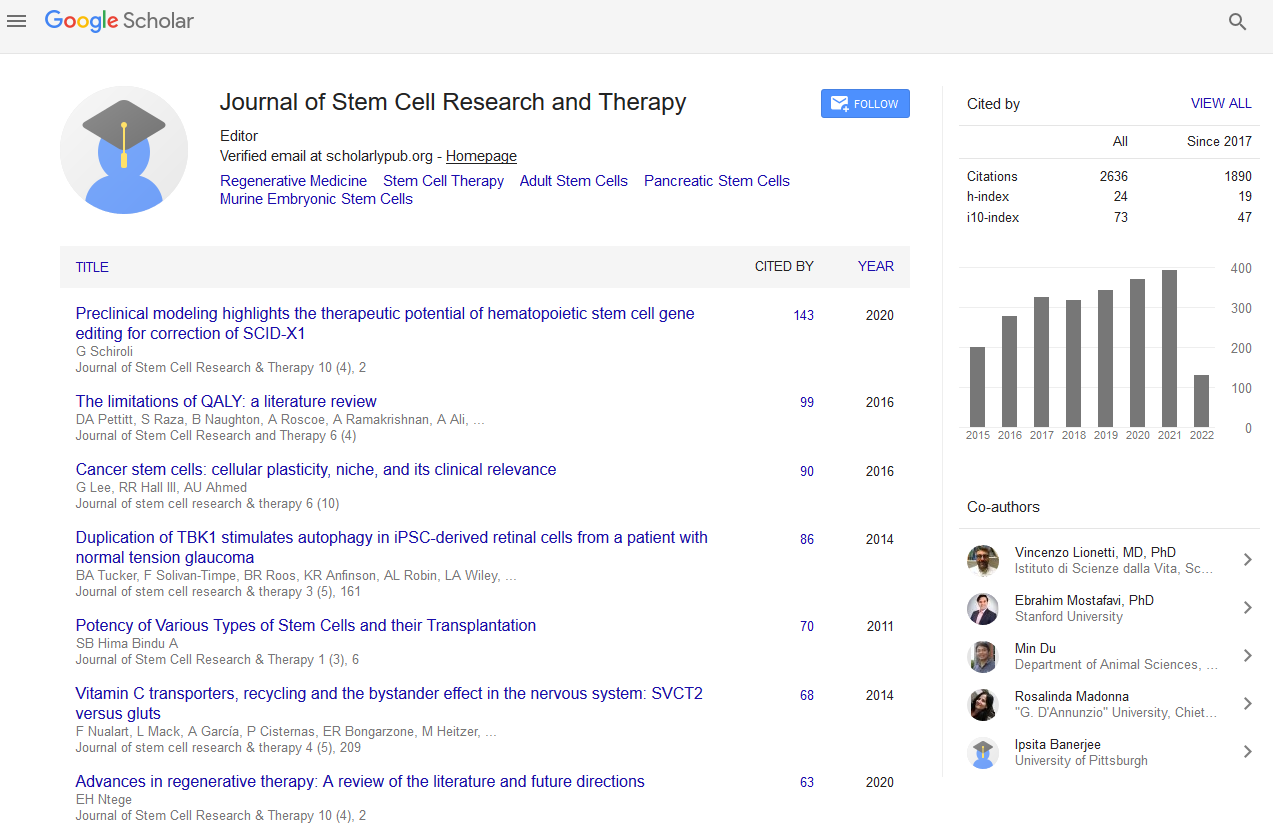Indexed In
- Open J Gate
- Genamics JournalSeek
- Academic Keys
- JournalTOCs
- China National Knowledge Infrastructure (CNKI)
- Ulrich's Periodicals Directory
- RefSeek
- Hamdard University
- EBSCO A-Z
- Directory of Abstract Indexing for Journals
- OCLC- WorldCat
- Publons
- Geneva Foundation for Medical Education and Research
- Euro Pub
- Google Scholar
Useful Links
Share This Page
Journal Flyer

Open Access Journals
- Agri and Aquaculture
- Biochemistry
- Bioinformatics & Systems Biology
- Business & Management
- Chemistry
- Clinical Sciences
- Engineering
- Food & Nutrition
- General Science
- Genetics & Molecular Biology
- Immunology & Microbiology
- Medical Sciences
- Neuroscience & Psychology
- Nursing & Health Care
- Pharmaceutical Sciences
Abstract
Generation of Functional Hepatic Cells from Pluripotent Stem Cells
Songyan Han, Alice Bourdon, Wissam Hamou, Noelle Dziedzic, Orit Goldman and Valerie Gouon-Evans
Liver diseases affect millions of people worldwide, especially in developing countries. According to the American Liver Foundation, nearly 1 in every 10 Americans suffers from some form of liver disease. Even though, the liver has great ability to self-repair, in end-stage liver diseases including fibrosis, cirrhosis, and liver cancer induced by viral hepatitis and drugs, the liver regenerative capacity is exhausted. The only successful treatment for chronic liver failure is the whole liver transplantation. More recently, some clinical trials using hepatocyte transplantation have shown some clinical improvement for metabolic liver diseases and acute liver failure. However, the shortage of donor livers remains a life-threatening challenge in liver disease patients. To overcome the scarcity of donor livers, hepatocytes generated from embryonic stem cell or induced pluripotent stem cell differentiation cultures could provide an unlimited supply of such cells for transplantation. This review provides an updated summary of hepatic differentiation protocols published so far, with a characterization of the hepatic cells generated in vitro and their ability to regenerate damaged livers in vivo following transplantation in pre-clinical liver deficient mouse models.


